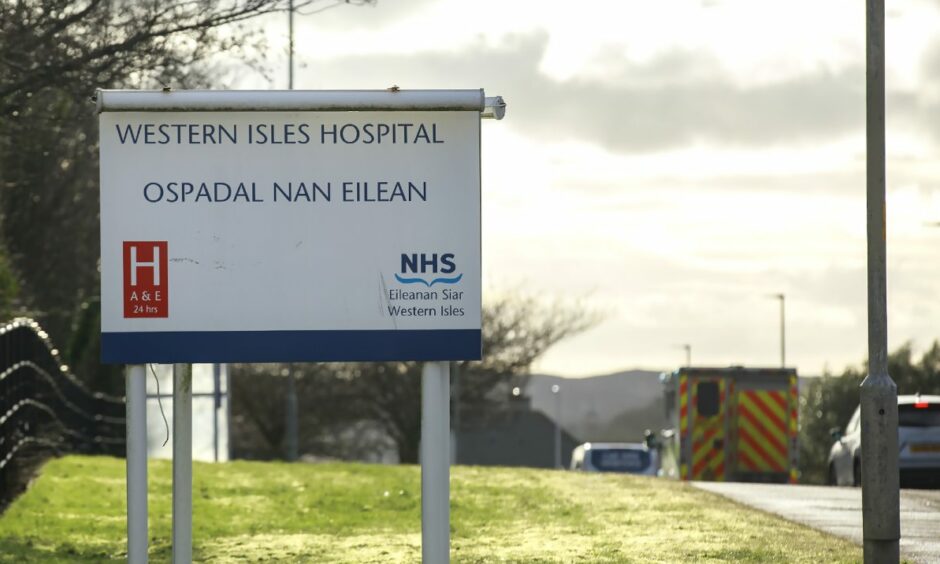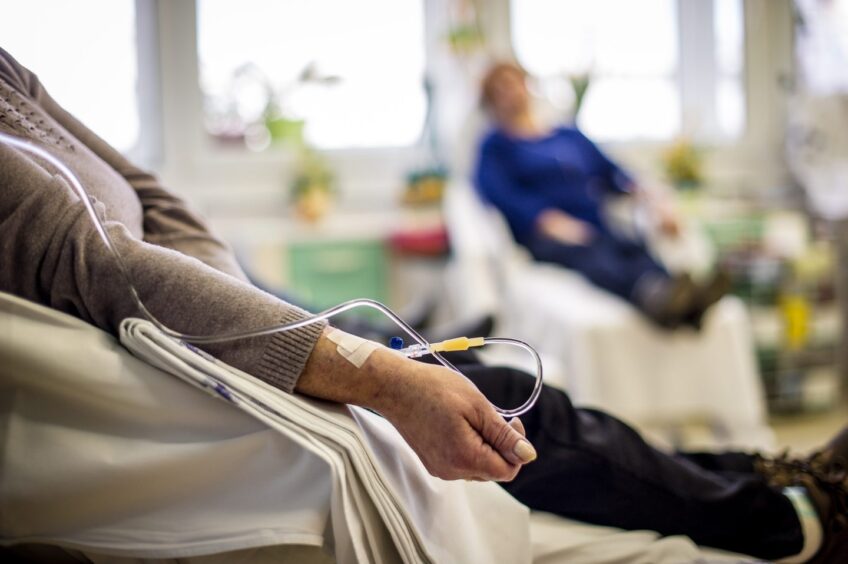An ovarian cancer patient from Stornoway has declined further life-lengthening treatment due to the toll travel to Glasgow is having on her body.
Ann MacLellan, from Stornoway, says she can’t face travelling to the city anymore for critical cancer care – and is calling for the creation of a new treatment centre for other islanders.
The 78-year-old has been travelling to the Beatson cancer centre in the city for chemotherapy for more than two years.
But after delayed flights, 14-hour days, and even being discharged from the hospital in Glasgow at midnight, she has decided to decline any further life lengthening therapy.
Mrs MacLellan – who has a strong faith and a large caring family – says she is just going to “live every day as it comes”.
‘Journeys from Stornoway to Glasgow take their toll’
Mrs MacLellan was diagnosed with ovarian cancer two-and-a-half years ago when doctors discovered a mass, kickstarting her chemotherapy treatment journey and numerous trips to Glasgow.
“I don’t really think that anyone knows what that is like if you are travelling from Stornoway unless you have experienced it,” she told The Press and Journal.
Mrs MacLellan’s travel is by aircraft from Stornoway to Glasgow, at a cost of “£900” a trip for the patient and a carer.
She takes the morning flight from Stornoway before taking a taxi from Glasgow Airport to the Beatson.
On the way back, she gets the afternoon flight back to the island. But that is only if weather and flight arrivals are on time, and treatment is finished promptly.
While the travel itself doesn’t cost anything – all islanders are entitled to financial
assistance with their travel costs under the NHS – the extra outlay of money to get there and back does.
“The money is good, but not enough to cover everything, ” she said.
One night, when her therapy took longer than expected, Mrs MacLellan said she was put out onto the street in Glasgow at midnight.
“We were given beds in a hotel near the hospital, but because it was a short distance we could not get a taxi. It was midnight and my daughter had to push me in a wheelchair for 10 minutes to the hotel,” she said.
The most frustrating thing of all for the grandmother is that there is a hospital that can provide some cancer treatments in Stornoway at Western Isles Hospital, only a few miles from her home.
Unfortunately, certain types of chemotherapy strictly require to be administered in a mainland centre due to the complexity or toxicity of the medicines.
Mrs MacLellan said: “I have no complaints about the medical care I have received. But travel is just not suitable when you are already unwell.
“I know that there is nothing more that can be done for me now, but if my experience could make it easier for other patients, then that would make telling my story worthwhile.
“NHS Western Isles, Western Isles Cancer Care Initiative (WICCI) and MacMillan have met with me and my family and we have explained things, but nothing has changed.
“I saw the gynaecologist in February and she said that the treatment I had was working. She also said there was another type of treatment I could have, but I couldn’t put my body through that again.
“I am living day-to-day and I am taking each day as it comes. If the treatment had been closer to home, I would have considered it.”
Mrs MacLellan explains that when she has asked about moving the treatment to the Western Isles, she is told that there is “red tape” surrounding who can and can not prescribe her cancer treatment medication.
While she admits by its very nature chemotherapy is toxic, she believes “there is no reason that someone could not be trained to prescribe it” to her in the Western Isles, rather than suffer the long trips to the city.
She said: “To be perfectly honest, if I didn’t have a faith I don’t know where I would be.”
‘We do everything we can to give patients best care’
A spokeswoman for NHS Western Isles said she sympathised with patients who have to travel for treatment, and that they could not comment on individual cases.
She said: “Services that can safely be delivered here in the Western Isles will, where possible, be delivered on-island.
“Chemotherapies are prescribed by a consultant oncologist, who will decide where and how it is safe to deliver the treatment.
“Certain types of chemotherapy strictly require to be administered in a mainland centre and this is unavoidable. This is either due to the complexity or toxicity of the medicines.
“This will require patients to attend the mainland on a regular basis, and we and our mainland partners do all we can to support this.
“Some appointments for chemotherapy also involve a consultation with a specialist oncologist which can take place on the same visit. ”
She added that the Beatson is Scotland’s largest cancer centre that provides care to 60 percent of Scotland’s population.
“As a leader in cancer treatment the Beatson has the latest cutting-edge equipment and provides the best available care for different cancer patients,” she said.
“There are also facilities available at the Beatson and other cancer centres where patients can wait in a comfortable area before having to travel home.
“It is highly regrettable when treatment is completed that does not coincide well with the transport to return home.
“Clearly NHS Western Isles is sorry for any situation where patients encounter waits in particular when they are poorly.”




Conversation